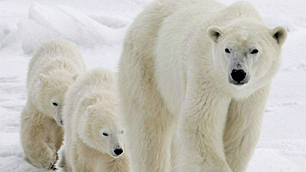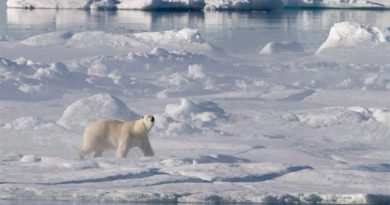Canada: Suicide rate in Arctic Quebec worsens compared to rest of province

Nunavik, the Arctic region of Quebec, has the highest suicide rate in the province. According to the latest available data from 2019, 35 people took their own lives that year, three times more than five years ago in the region.
Because its population is relatively small (about 13,000), the effects are amplified when scaled to 100,000 for provincial comparison.
It translates into 177.1 cases per 100,000 inhabitants in Nunavik, an average that is out of line with the provincial rate of 13.1 suicides per 100,000 inhabitants, according to the latest data published Monday by the Institut de la santé publique du Québec (INSPQ).
Graphic: Adjusted suicide rate by region for 2017-2019
Over the past five years, suicide rates in Nunavik have continued to rise compared to the rest of Quebec. In fact, the report notes that the number of people who have taken their own lives in the province does not appear to have increased in 2020.
The justifications put forward to explain this gap experienced by several Indigenous communities are, literally, identical to those of last year.
“Difficulties in accessing specialized care and services, challenges in recruiting and retaining human resources, ongoing impacts of recent colonization, socio-economic difficulties, culturally and linguistically unadapted practices are some of the factors that may explain Nunavik’s rates […]”, according to the 2021 and 2022 reports.
Looking for help?
If you are thinking about suicide or if you are worried about a loved one, counsellors are available to help you anywhere in Quebec 24 hours a day, seven days a week.
- Phone: 1 866 APPELLE (277-3553)
- Text: 1 855 957 5353
- Chat, information and tools: www.suicide.ca
While the 2021 study considered it “crucial to address economic disparities”, the 2022 study mainly recommends “preventive actions targeting the specificities of these regions” where suicide rates are significantly higher than elsewhere.
A priority and a challenge
“Addressing this issue is a challenge”, acknowledges Indigenous Services Canada (ISC) in a reply to Espaces autochtones.
Megan MacLean, spokesperson for Indigenous Services Canada
Some mental wellness programs have experienced “service disruptions, changes in service delivery,” notes ISC, pointing out that an annual investment of $645 million in 2020-21 has been announced to support mental wellness in Indigenous communities, which includes suicide prevention.
Indigenous Services Canada also reports that its mental wellness program is assessed on a regular basis and that this assessment determined that there is a “continued need for the program and that its activities meet the needs of the community”.
However, “a performance measurement strategy” has yet to be developed, says ISC in its written response to Espaces autochtones.
In Quebec, the Secrétariat aux affaires autochtones (SAA) indicates that it has supported the First Nations and Inuit Suicide Prevention Association of Quebec and Labrador for over 15 years.
The SAA also intervenes through a crisis cell to support First Nations communities in Quebec that are going through social crises, especially in the event of a suicide in a community.
You can read the ISNPQ report in French here:
Le suicide au Québec 2022 by MAUD CUCCHI on Scribd
Original article translated from French by Mathiew Leiser
Related stories from around the North:
Canada: Iqaluit teens in Arctic Canada take to the street to demand more suicide prevention for Nunavummiut, CBC News
Russia: Why high suicide rates in Arctic Russia?, Deutsche Welle’s Iceblogger
Sweden: Gender stereotypes behind high suicide rate, Radio Sweden
United States: Alaska’s suicide rates jump 13 percent, report shows, Alaska Public Media



